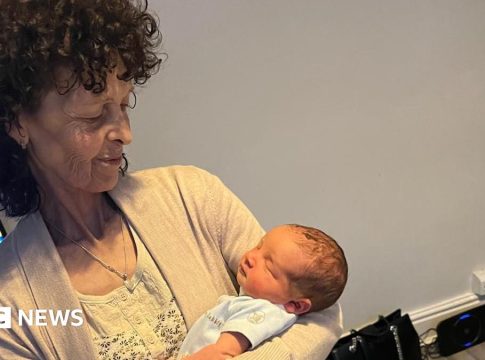Understanding the Impact of Gambling Addiction on Families
Gambling addiction can often cast a long shadow, not just over the individual grappling with the compulsion, but also over their loved ones. Every story of addiction is unique, yet many share common threads of struggle, loss, and hope for recovery. This article aims to shed light on the realities of gambling addiction and its ripple effects on families, fostering compassion and understanding.
The Hidden Costs of Gambling
For individuals facing gambling addiction, the stakes can escalate quickly—often leading to significant financial, emotional, and relational harm. In many cases, the immediate consequences include overwhelming debt, broken trust, and a strained family dynamic. For family members, witnessing a loved one succumb to this compulsion can invoke feelings of helplessness, frustration, and sorrow.
The narrative of a mother suffering due to her child’s gambling habit highlights not just the personal toll, but also the broader ramifications for families. As funds are drained away, the financial burden can lead to severe stress, impacting health and overall well-being. It’s essential to acknowledge these emotional hardships, as they are often overlooked in discussions around addiction.
Recognizing Gambling Addiction
Understanding gambling addiction is crucial for both those affected and their loved ones. This condition, often categorized as a behavioral addiction, compels individuals to gamble despite negative consequences. Here are a few signs to be aware of:
- Preoccupation with Gambling: Constant thoughts about betting or planning the next gambling session.
- Inability to Cut Back: Repeated unsuccessful attempts to reduce or stop gambling.
- Chasing Losses: Continuing to gamble in hopes of recouping lost money.
If you recognize these signs in someone you care about, it’s important to approach the situation with empathy.
Supporting Emotionally and Practically
For those coping with the aftermath of a loved one’s gambling addiction, self-care is essential. Here are several strategies that may help you navigate this challenging journey:
- Open Communication: Foster an environment where open discussions can occur. Express your feelings honestly and encourage your loved one to share their own experiences.
- Educate Yourself: Understanding the intricacies of gambling addiction can demystify the experience. This knowledge can empower both you and your loved one in seeking treatment.
- Seek Support Networks: Consider joining support groups or seeking counseling. Sharing experiences with others who understand can be incredibly validating.
Pathways to Recovery
Recovery from gambling addiction is a journey that often requires professional intervention. Therapy and support groups play a pivotal role in healing, not only for the individual but also for the family. Treatment may include:
- Cognitive Behavioral Therapy: This approach helps individuals understand the thoughts and emotions fueling their gambling behavior.
- Family Therapy: Engaging the entire family unit in therapy can rebuild trust and promote healthier communication patterns.
While the road to recovery may be fraught with challenges, it is important to maintain hope and focus on resilience. Families can emerge stronger, equipped with better communication tools and a deeper understanding of one another’s struggles.
Conclusion: Embracing Hope
Gambling addiction is a complex issue, but awareness and understanding can drastically improve the healing process. By approaching this subject with compassion and patience, it’s possible to create a supportive environment conducive to recovery. Remember, it’s never too late to seek help and take the first steps toward a healthier, more balanced life—both for the individual affected and their loved ones.

Covers wellness, nutrition, mental health, and daily life tips.
Bio: Talia brings a background in health journalism and holistic living to help readers live better, one tip at a time.

